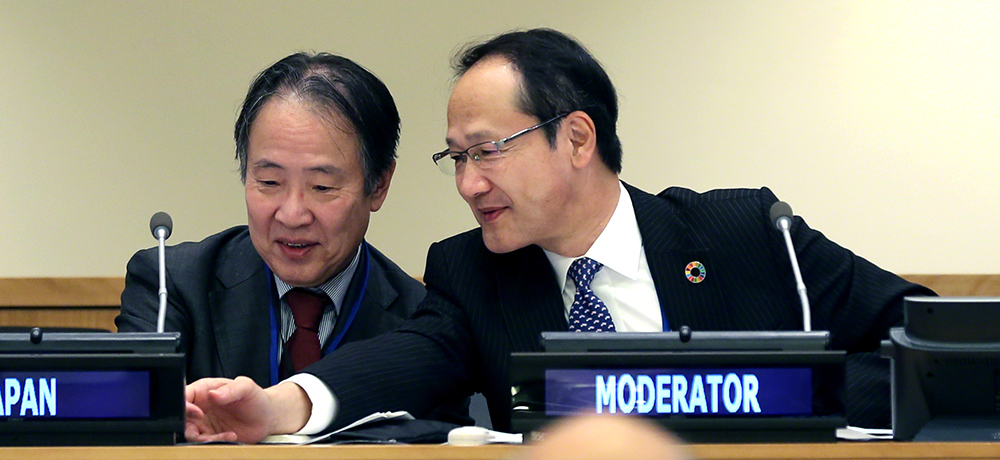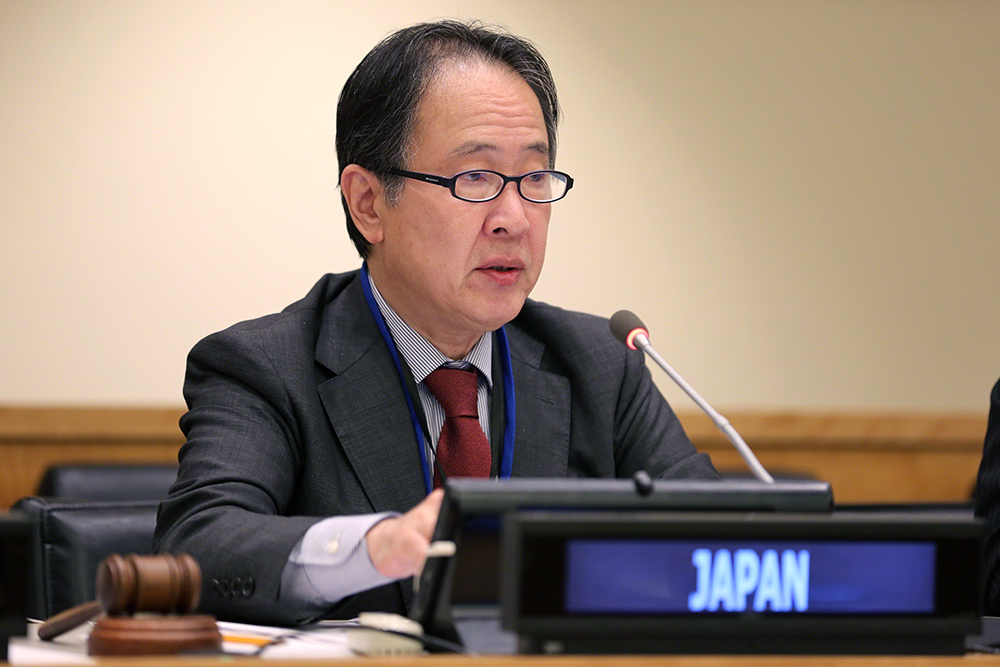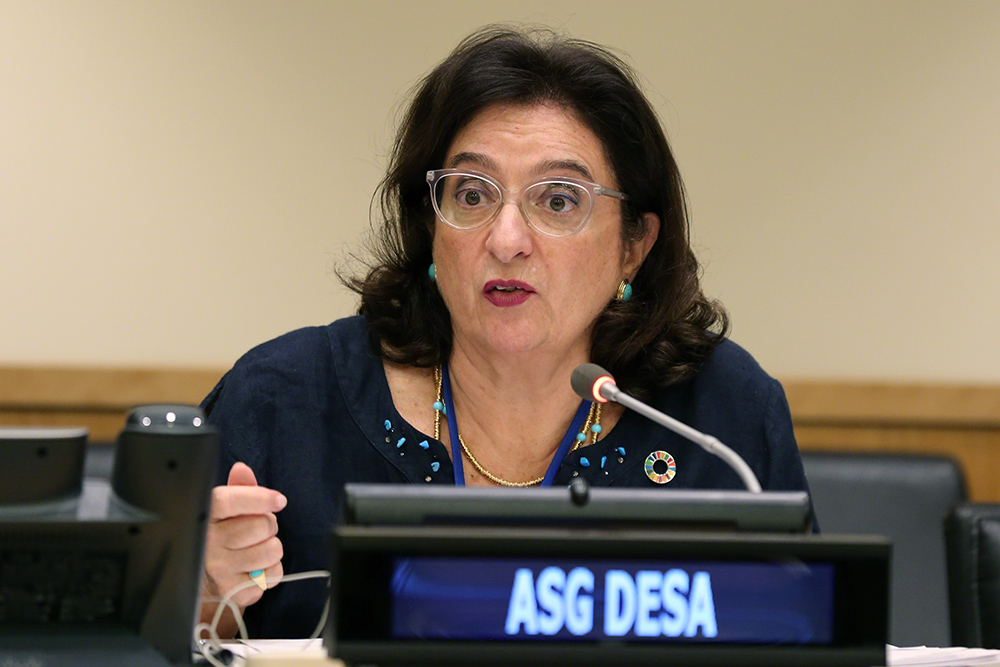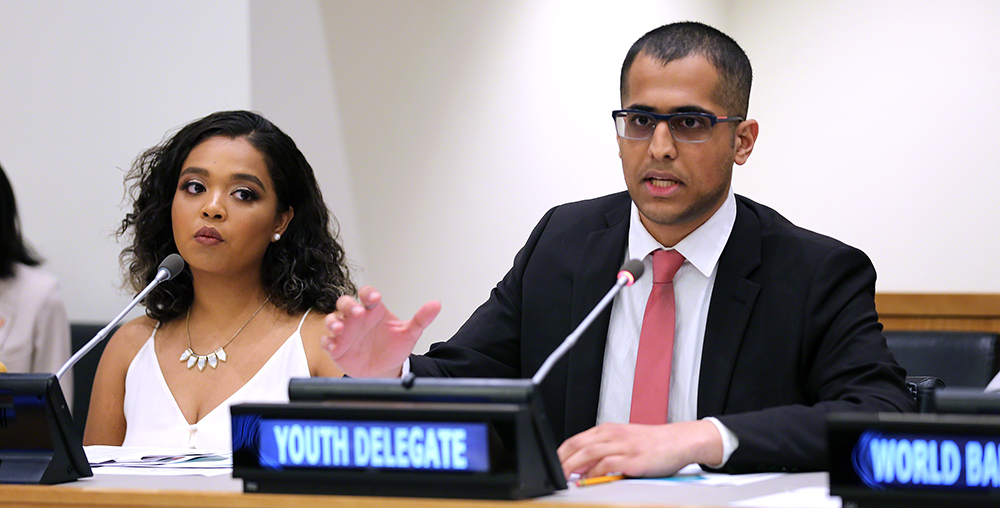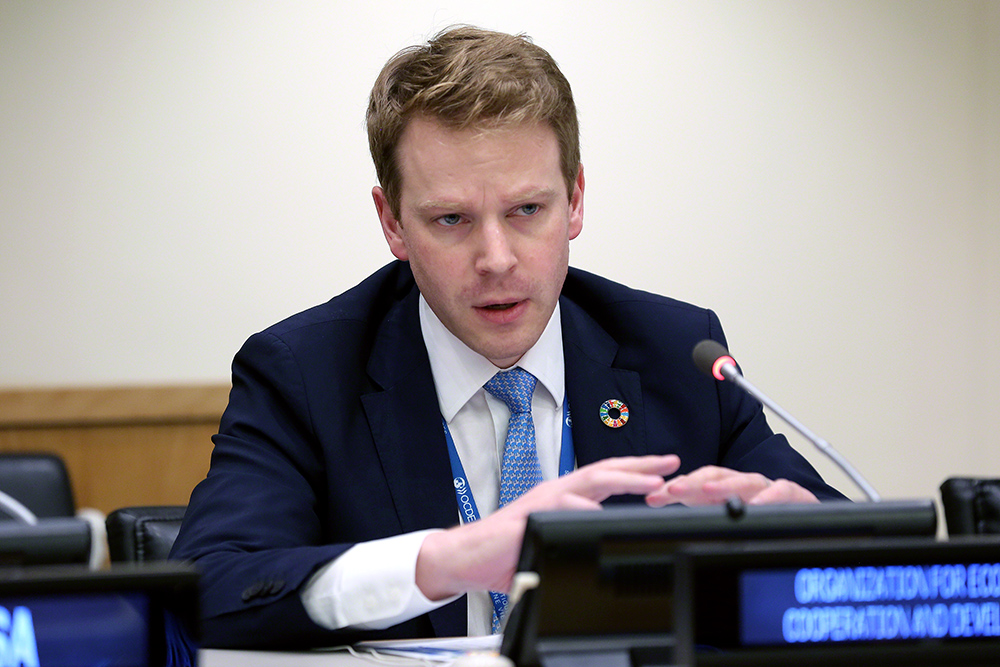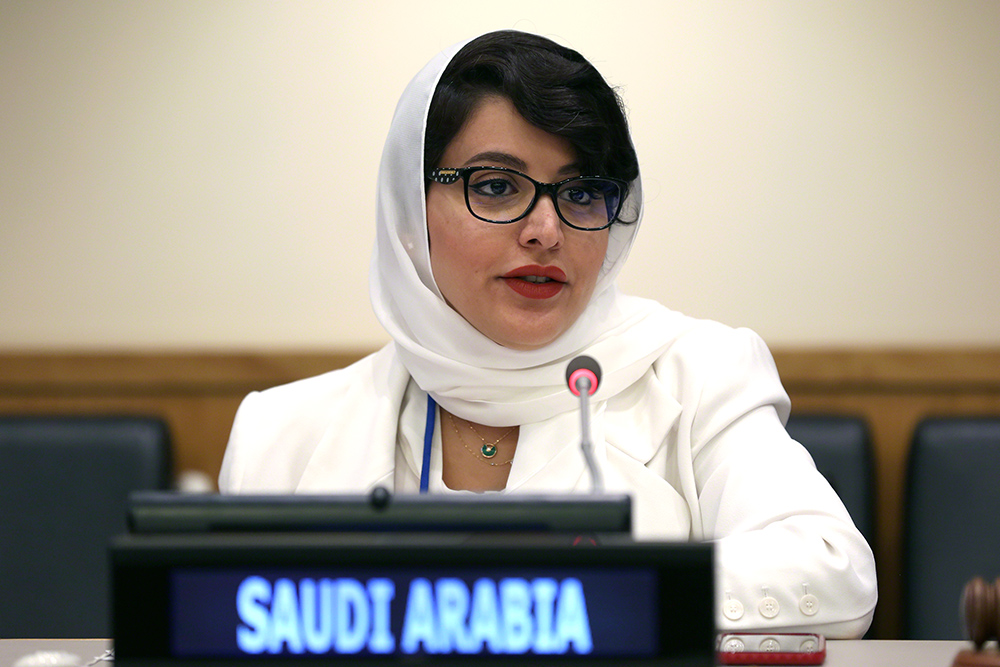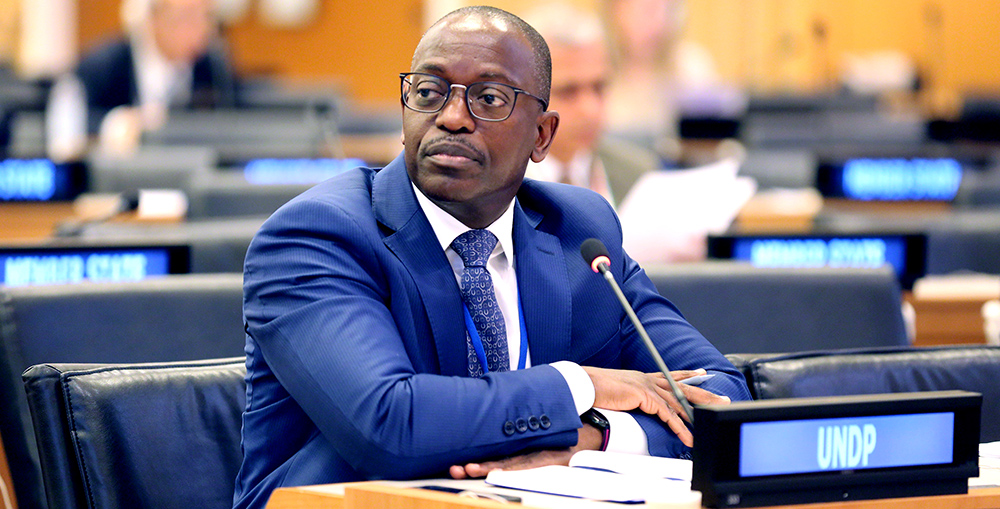Summary
Events Covered on Monday, 15 July 2019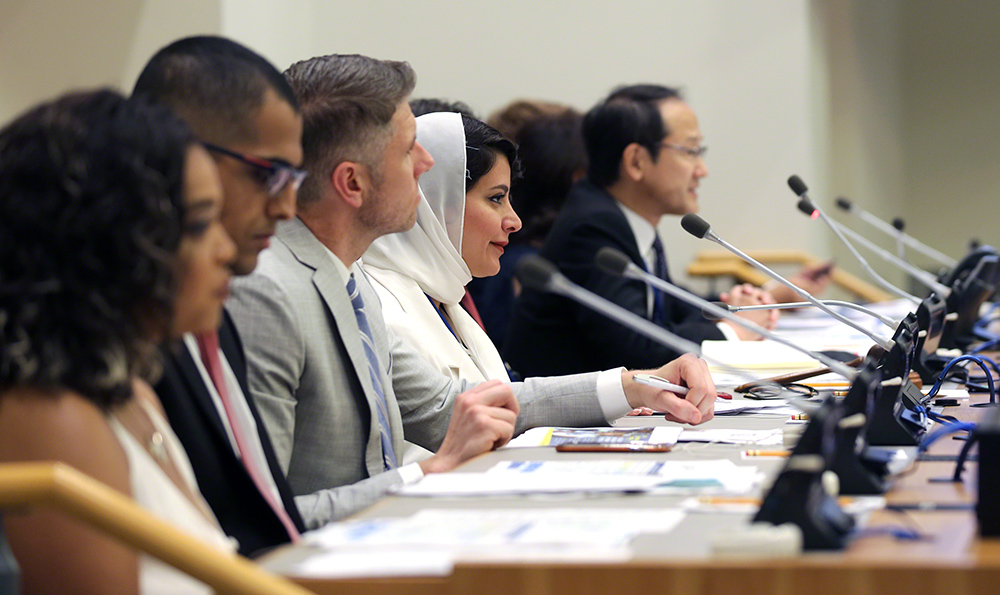
 The following events were covered by IISD Reporting Services on Monday, 15 July 2019:
The following events were covered by IISD Reporting Services on Monday, 15 July 2019:
Photos by IISD/ENB | Mike Muzurakis
For photo reprint permissions, please follow instructions at our Attribution Regulations for Meeting Photo Usage Page
Satoyama Initiative – Society in Harmony with Nature: An inclusive Approach for Communities on Landscapes and Seascapes
Presented by the Secretariat of the Convention on Biological Diversity (CBD) with the co-sponsorship of the Governments of Bhutan, Costa Rica and Japan; and the Global Environment Facility (GEF) Small Grants Programme (SGP) of the UN Development Programme (UNDP), Institute for Global Environmental Strategies (IGES), and the UN University-Institute of the Advanced Study of Sustainability (UNU-IAS)
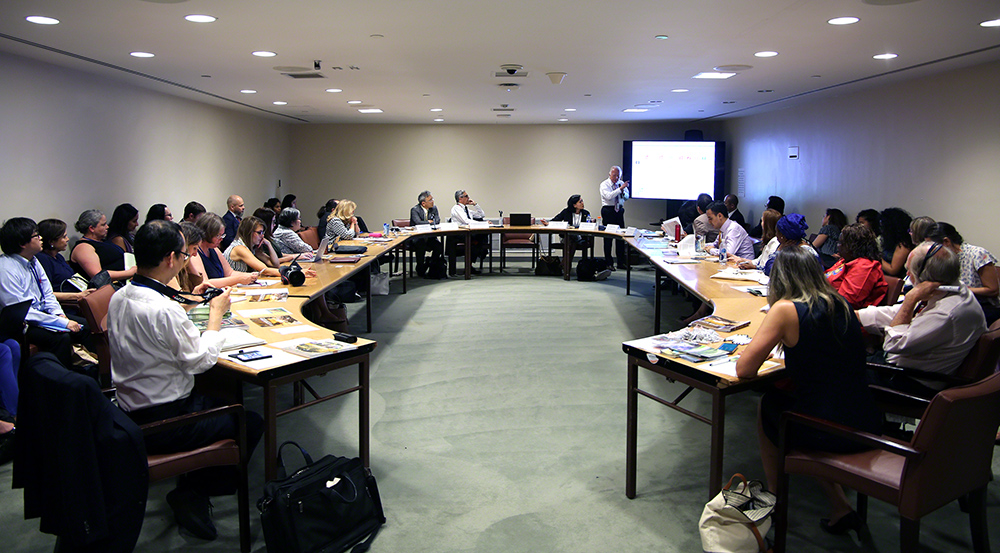
Key messages:
- The International Partnership for the Satoyama Initiative (IPSI) is a global platform aiming to facilitate and accelerate the implementation of activities under the Satoyama Initiative, which envisions inclusive societies that operate in harmony with nature and biodiversity in production landscapes and seascapes;
- The Community Development and Knowledge Management for the Satoyama Initiative (COMDEKS), launched in 2011, is a flagship program of the Satoyama Initiative, funded by the Japan Biodiversity Fund (JBF) of the Secretariat of CBD and implemented by UNDP through the GEF SGP;
- The COMDEKS provides grants to civil society and community-based organizations through participatory landscape planning and to carry out projects to increase community resilience and to maintain, rebuild, and revitalize Socio-Ecological Production Landscapes and Seascapes (SEPLS); and
- The inclusive approach of the Satoyama Initiative together with the cases of COMDEKS will provide firm basis for the implementation of: relevant SDGs, the Strategic Plan for Biodiversity 2011-2020 and the Aichi Biodiversity target, as well as for the preparation of the Post-2020 Global Biodiversity Framework toward the realization of the vision of “society in harmony with nature” in 2050.
This side event aimed at sharing key lessons learned from the Satoyama Initiative and its program COMDEKS, as well as exploring how to mainstream the landscapes and seascapes approach in national and sub-national policies as a critical step towards an inclusive sustainable future, where livelihood and biodiversity co-exist in harmony.
Event summary:
Kazuhiko Takemoto, UNU-IAS moderated the event.
Satoru Morishita, Vice Minister for Global Environment Affairs, Ministry of the Environment of Japan, welcomed participants by drawing attention to the Intergovernmental Science-Policy Platform on Biodiversity and Ecosystem Services (IPBES) 2019 Global Assessment Report on Biodiversity and Ecosystem Services. He noted that this report highlights the effectiveness of the participatory approach to achieve the Sustainable Development Goals (SDGs), arguing that the Satoyama Initiative can provide useful guidance for the implementation of the CBD Post-2020 Global Biodiversity Framework by promoting area-based management and conservation outside protected areas.
In a keynote speech, Kazuhiko Takeuchi, IGES and UNU-IAS, presented the International Partnership for the Satoyama Initiative (IPSI), launched in 2010, as a platform for promoting network, collaboration and research that contributes to the CBD processes, the SDGs and to the SEPLS. He said the conceptual framework of the Satoyama initiative seeks to: consolidate wisdom on securing diverse ecosystem services and values; integrate traditional ecological knowledge and modern science; and explore new forms of co-management systems. He also presented the concept of the “Regional/Local Circulating and Ecological Sphere (CES)” as a way of integrated solution of issues at community level.
Doma Tshering, Permanent Representative of Bhutan to the UN, called for collaboration and partnerships that are targeted, impactful, inclusive and responsive to national needs and circumstances. She gave the example of the Gamri Watershed project in eastern Bhutan to highlight how the Satoyama Initiative and COMDEKS have empowered local communities.
Christian Guillermet Fernández, Deputy Permanent Representative of Costa Rica to the UN, shared Costa Rica’s experience with the GEF-SGP through the COMDEKS program, in particular to promote sustainable livelihood of indigenous peoples, to establish biological corridors, and to manage water resources. He noted community ownership as an essential part of conservation solutions.
Wataru Suzuki, Japan Biodiversity Fund (JBF) of the Secretariat of the CBD, underlined the JBF contributes to capacity building of developing countries primarily by promoting Secretariat projects that assist Parties to: implement the Strategic Plan for Biodiversity 2011-2020 and the Aichi Biodiversity Targets; revise their National Biodiversity Strategies and Action Plans (NBSAPs) to include national targets, in accordance with the Strategic Plan; and strengthen their overall capacity to implement the Convention at national level, including COMDEKS. He also shared information on the consultation process for the Post-2020 Global Biodiversity Framework.
Yoko Watanabe, GEF-SGP, UNDP, explained that COMDEKS applies a community-based landscape approach for conserving ecosystems and biodiversity, while promoting sustainable livelihoods. Noting that the supported projects have contributed to achieving all five of the Strategic Goals of the Strategic Plan for Biodiversity 2011-2020 and many of the individual Aichi Biodiversity Targets, she announced as key results: the development and implementation of 20 Integrated Land/Seascape Strategies with a total of 216 projects in 20 countries, as well as over 70,000 community beneficiaries across the 20 target landscapes.
In the ensuing discussion, Astrid Schomaker, European Commission, noted the need to optimize and scale-up nature-based solutions, including in the Nationally Determined Contributions (NDCs) of the Paris Agreement on Climate Change. One participant inquired about what were the requirements for being part of the IPSI, while another participant emphasized the need to “bring up” the participation of civil society to achieve the 2020 biodiversity goals.
Stephen Gold, UNDP made a closing remark and thanked all for the partnership under the Satoyama Initiative.
Event conclusions:
Participants agreed that the Satoyama Initiative is a good example of an effective tool for meeting many of the SDGs and the Aichi Biodiversity Targets adopted under the Convention on Biological Diversity. The side event highlighted how a community-based model of landscape and seascape management can enhance the resilience of local ecosystems, protect biodiversity, and support sustainable livelihoods of rural communities.
Why does it matter:
There is an inherent link between the sustainable management of biodiversity and the well-being of local communities. Therefore, the event illustrated how the Satoyama Initiative and its COMDEKS Program, as well as funding mechanisms and relevant international frameworks, contribute to implementing several Sustainable Development Goals (SDGs), such as SDG 8 (on Decent Work and Economic Growth), but also SDG 10 (on Reduced Inequalities), SDG 13 (Climate change), SDG 14 (Life under water), SDG 15 (Life on Land), the Aichi Biodiversity target, as well as toward the Post-2020 Global Biodiversity Framework.
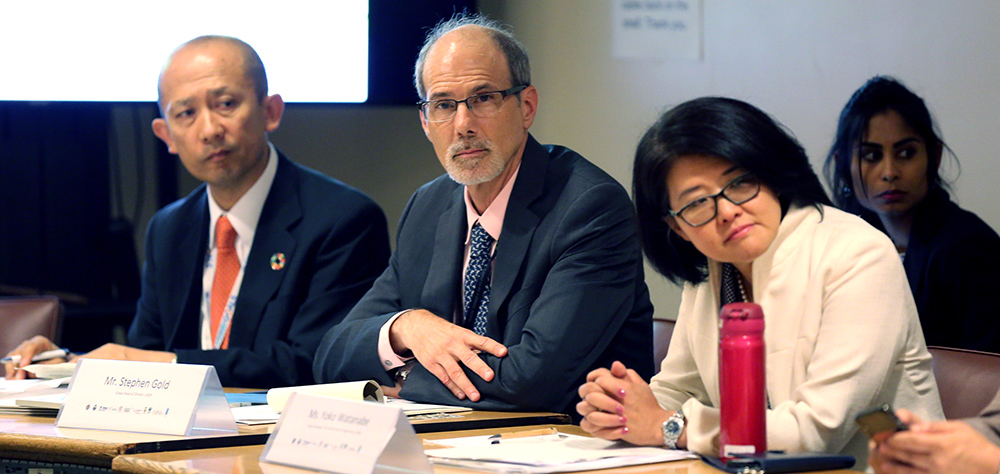
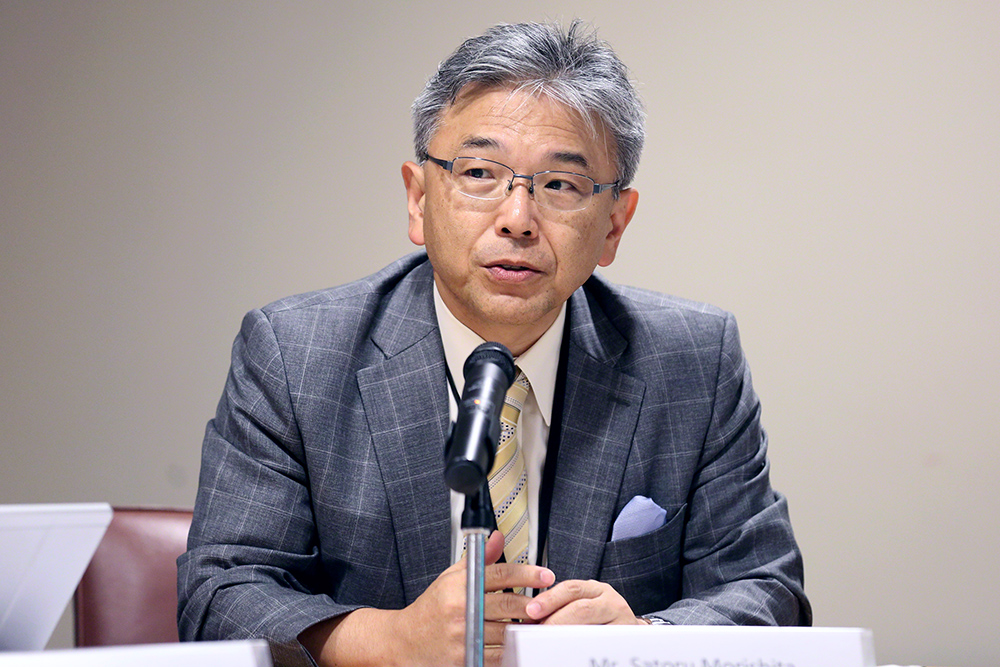
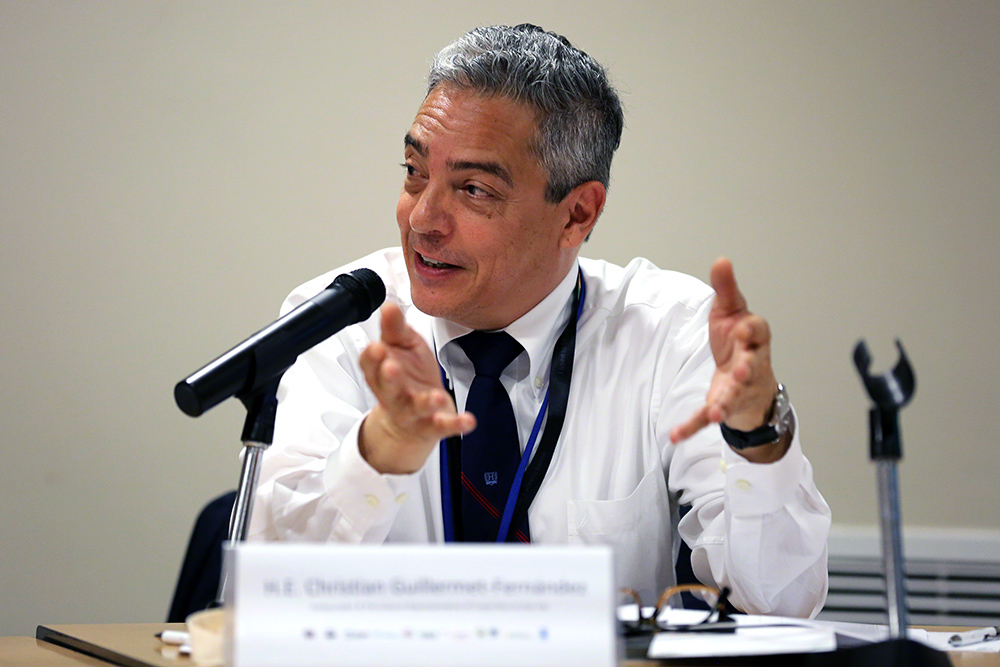
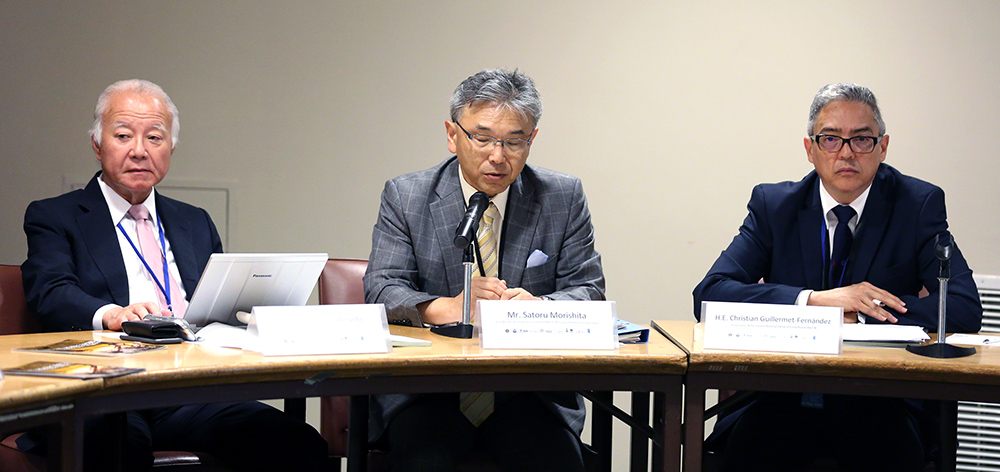
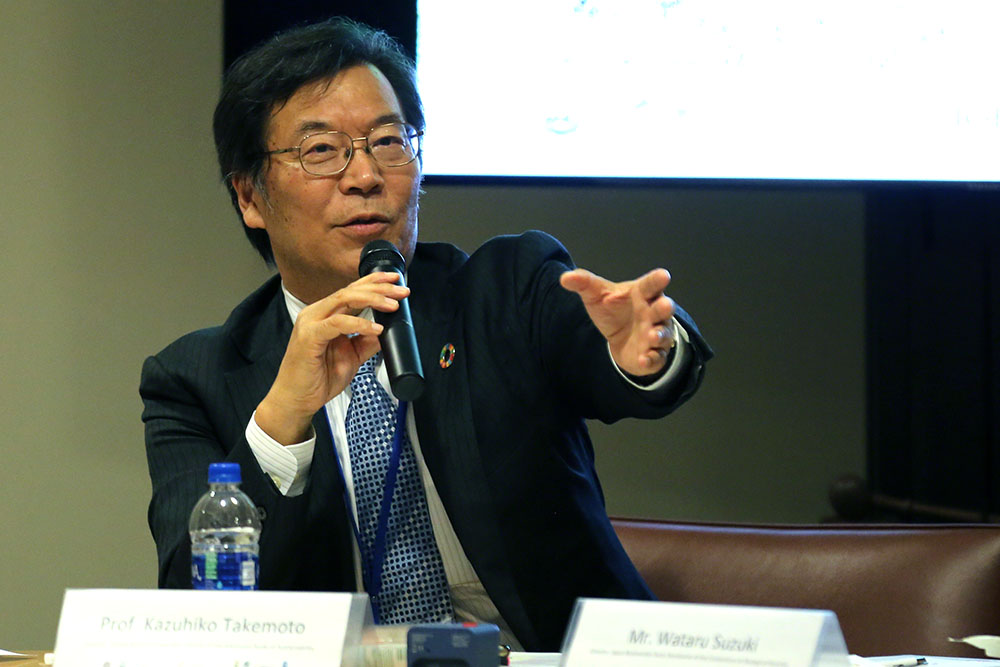
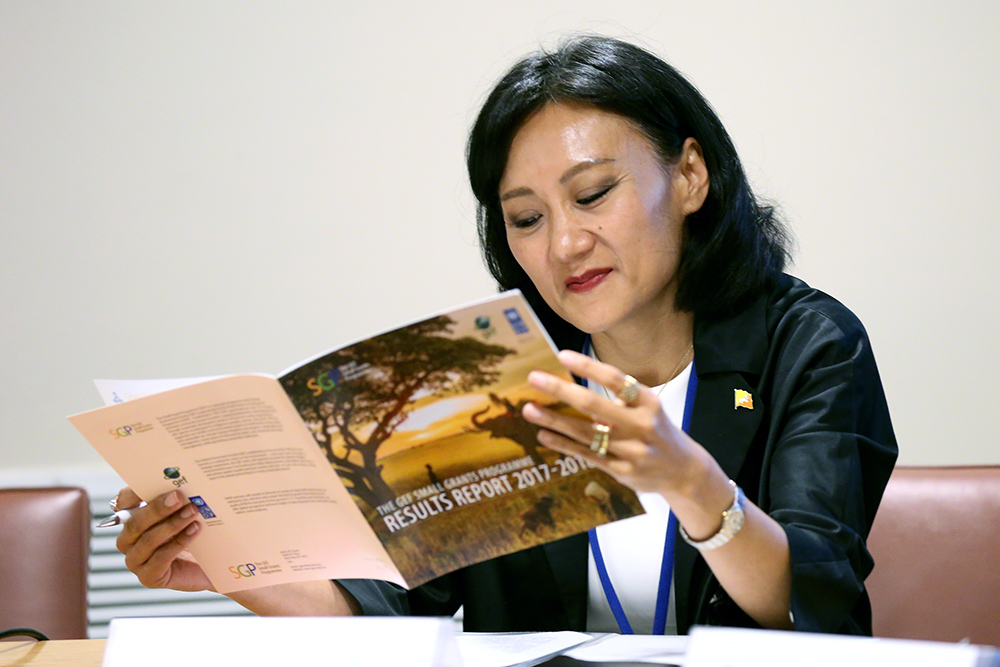
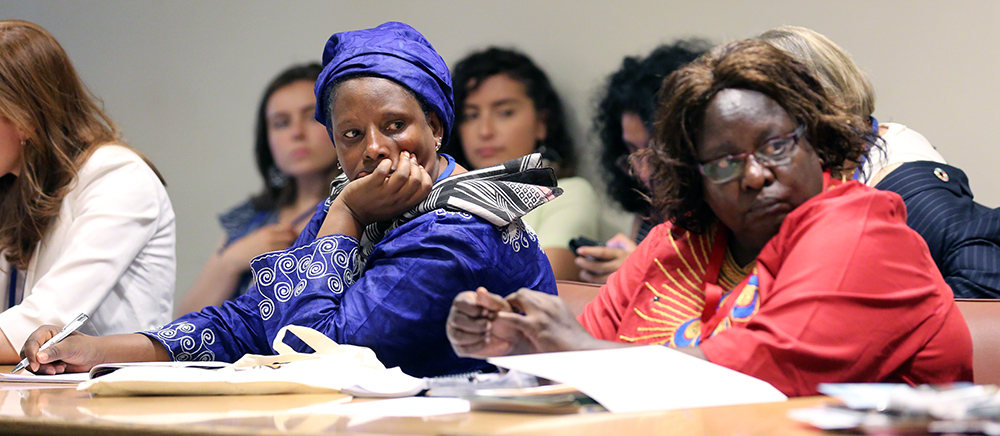
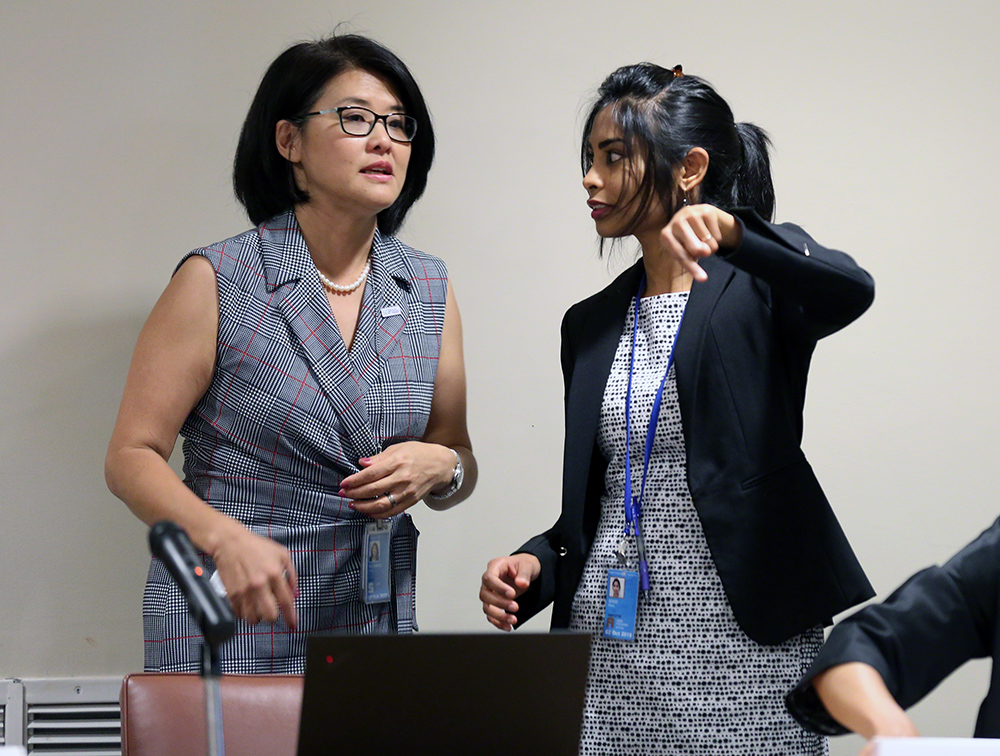
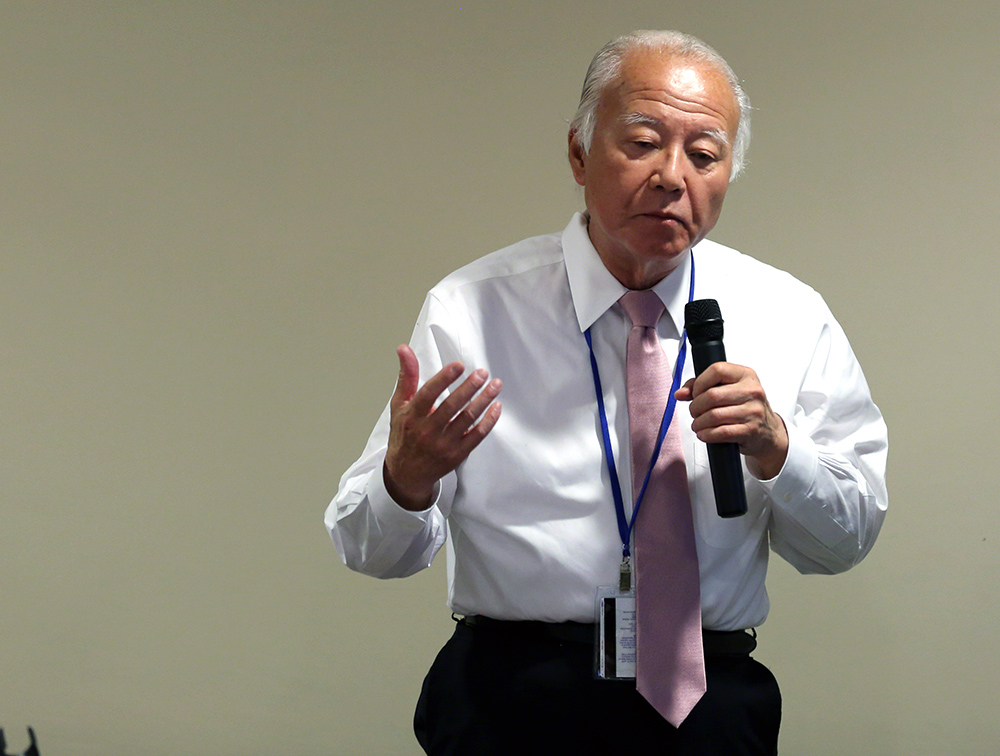
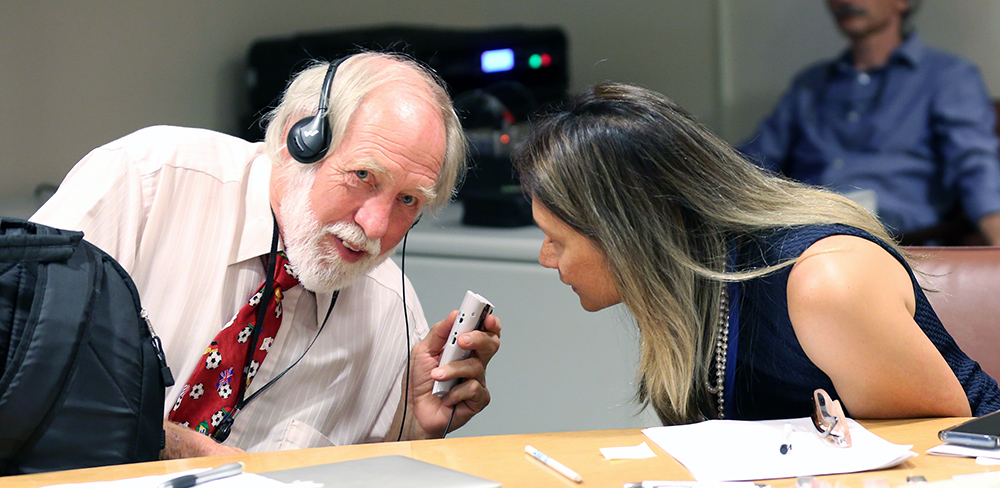
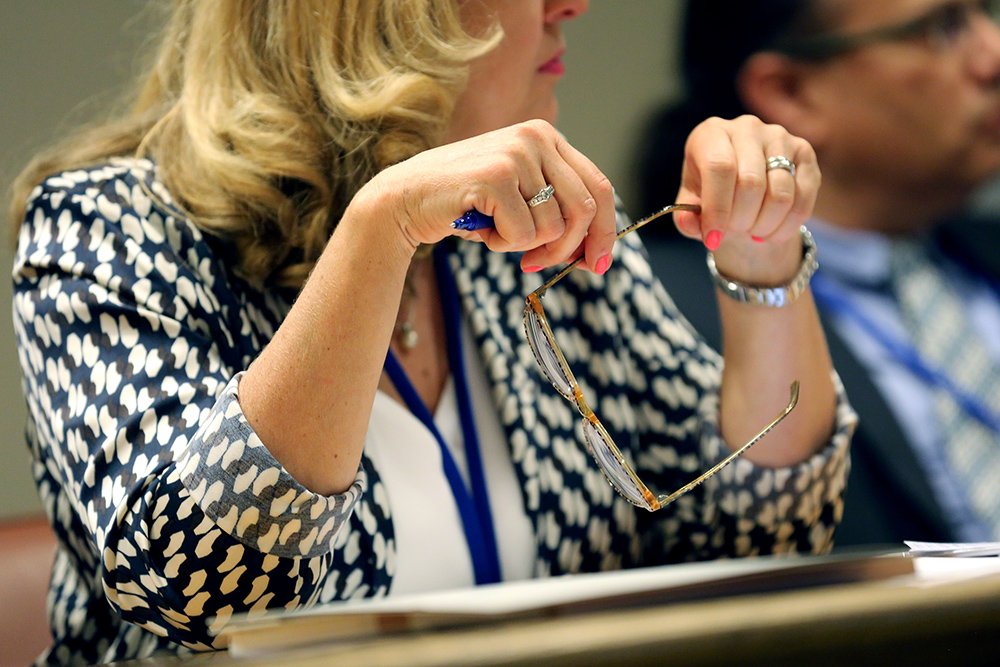
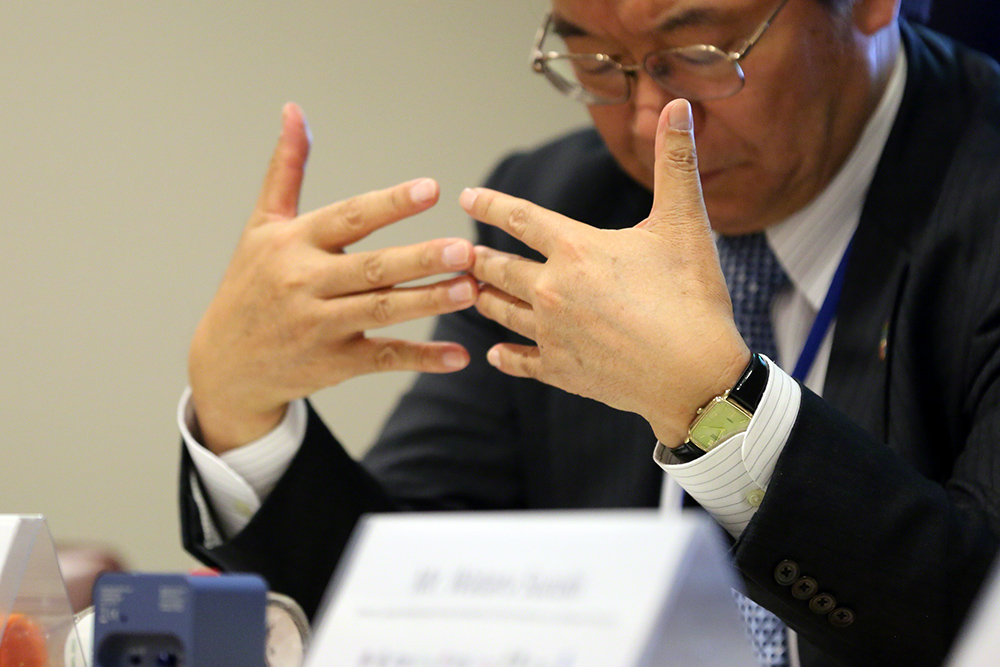
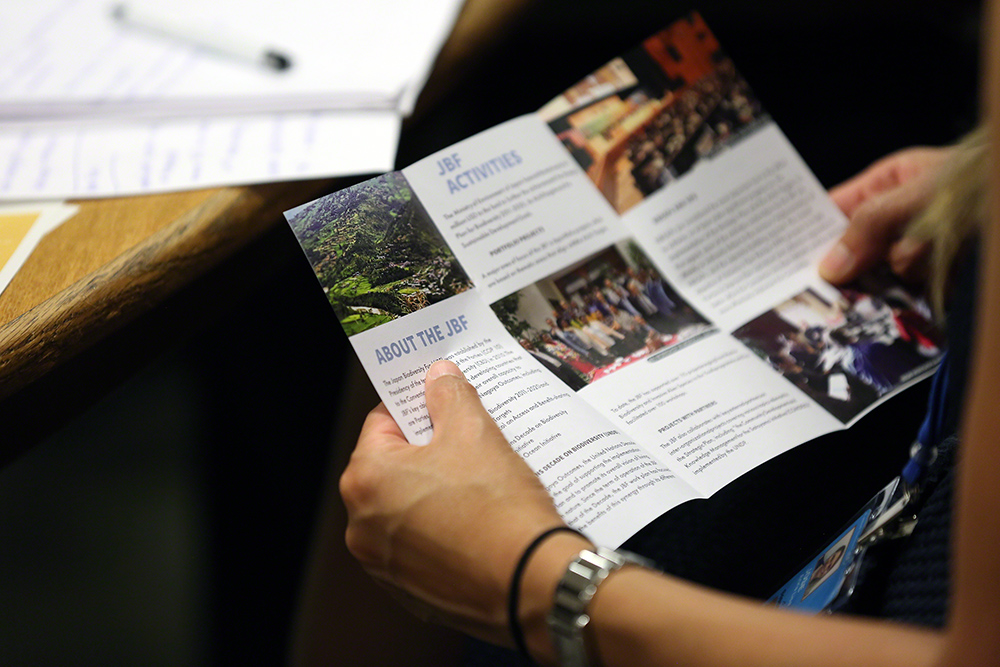
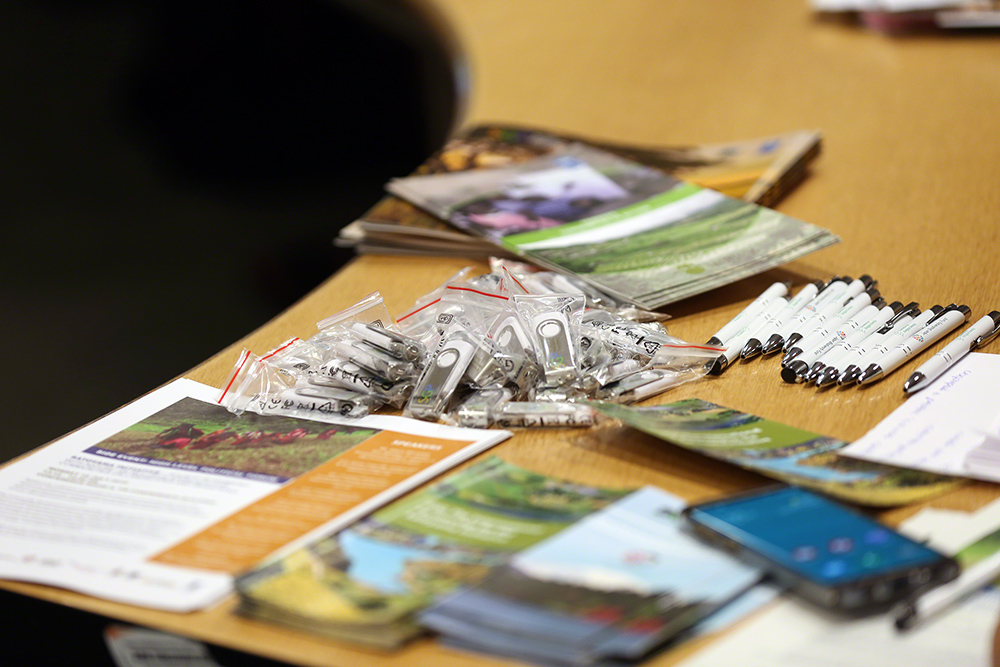
The 2030 Agenda under the Japanese Presidency of the G20
Presented by Japan and the UN Department of Economic and Social Affairs (DESA)

Key messages:
- In December 2018, Japan assumed the G20 Presidency for the first time;
- Looking to promote common ground among countries, Japan convened the G20 Osaka Summit in June 2019, which produced the G20 Osaka Leaders’ Declaration and honored the commitments of the 2030 Agenda for Sustainable Development;
- Priority areas of the Japanese Presidency for 2019 include: health; education; quality infrastructure; innovation; gender equality; climate change; and marine environment; and
- According to the report “G20 Contribution to the 2030 Agenda- Progress and Way Forward,” G20 members account, collectively, for around 85% of global gross domestic product (GDP), 75% of world trade, 80% of global carbon dioxide emissions (CO2) and 70% of global plastic production – as well as two-thirds of the world’s population and more than half of the world’s poor population.
The event allowed participants to develop insights into the G20 development agenda and its contributions towards the implementation of the 2030 Agenda.
Event Summary:
During the panel “Outcome of the G20 Osaka Summit,” Koji Tomita, Representative of the Government of Japan for the G20 Summit, shared the main results of the G20 Osaka Leaders’ Declaration, highlighting Japan’s priority areas: quality infrastructure; disaster risk reduction; marine plastic litter; climate change; women's empowerment; health; and education. He underscored the importance of the G20 to protect multilateralism, emphasizing, in particular, the need to overcome current global trade dispute. He also encouraged Member States to promote debate on data governance, underscoring the value of trust to overcome global challenges. He reaffirmed Japan’s commitment to support waste management in countries with limited capacity to deal with pollution and noted the “spirit of solidarity despite the weakening trust in multilateralism” as the biggest success of the Osaka Summit.
Haifa Al Mogrin, the Kingdom of Saudi Arabia, announced the priorities for its G20 Presidency in 2020, underscoring: women's empowerment and youth; infrastructure; food security; energy; human capital; climate change; inclusive business; water; and small and medium enterprises.
Presenting as part of a panel discussion on analysis on G20 contribution to the implementation of the 2030 Agenda, Maria-Francesca Spatolisano, UN DESA, praised the Osaka Update on the G20 Action Plan on the 2030 Agenda for being ambitious. She explained that, despite some progress, much faster action is needed to ensure that all Sustainable Development Goals (SDGs) are met by 2030, calling for enhanced support mechanisms, notably for the least developed countries.
Kerri Elgar, Organisation for Economic Co-operation (OECD), via video, presented the report ‘G20 Contribution to the 2030 Agenda- Progress and Way Forward,’ published by the OECD and the UN Development Programme (UNDP). Recalling that the report looks at how the G20 could collectively contributed to the SDGs, she noted opportunities for lowering costs of remittances to generate at least USD 25 billion/year by 2030; increasing female participation in the workforce and reducing the gender gap by 25% by 2025; and cooperation on tax transparency, resulting in the identification of USD 95 billion in additional revenue since 2009.
Mansour Ndiaye, UNDP, gave feedback on the presented report, recommending the following key critical areas for further work: fiscal space; industrialization and trade; quality infrastructure, including energy; harnessing science and technology for innovation; and climate action, with special focus on disaster risk reduction.
Presenting as part of a panel discussion on empowering future generations, Jason Weaver, World Bank Group, presented the Human Capital Project, a global effort to accelerate more and better investments in people for greater equity and economic growth.
As youth delegates to the Y20 Japan Forum, Shahrukh Khan and Vannary Kong, United States, highlighted the importance of: fundamental rights at work and social protection; equal pay for equal work; programs for youth professional development; investment in soft skills (communication and collaboration); and adoption of rules of transparency for sustainable businesses.
Event conclusions:
The debate demonstrated the role of the G20 for the implementation of the 2030 Agenda and showcased how Japan is committed to achieving the SDGs by highlighting, in particular, the urgency to support: a free trade system; the World Trade Organization reform; and the concept of Data Free Flow with Trust, calling for more accountability in the digital world.
